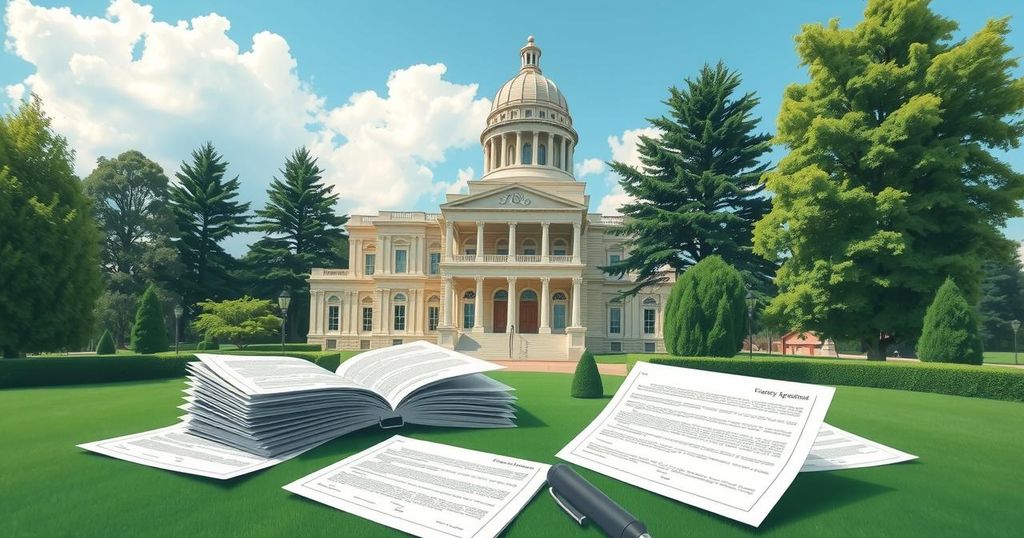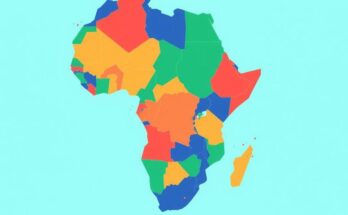Argentina’s Congress has approved President Javier Milei’s plan for a new loan from the IMF, aimed at strengthening the central bank’s reserves and managing debt payments. With 129 votes in favor, the approval comes amidst protests against austerity and previous IMF agreements. The president asserts the loan will help tackle inflation, which has seen a decline since his office began implementing cost-cutting measures despite rising poverty levels.
Argentina’s Congress has approved President Javier Milei’s request to pursue a new loan agreement with the International Monetary Fund (IMF), in addition to the $44 billion already owed. This approval will enable him to negotiate a ten-year loan aimed at enhancing the central bank’s foreign currency reserves and addressing forthcoming debt payments. The exact loan amount remains undisclosed, though historic context shows Argentina has undergone 22 IMF bailouts despite experiencing several debt defaults.
On March 11, Milei formally requested legislative approval for this new loan. According to a 2021 law, the president must gain authorization from both chambers of Congress to secure IMF funding, but support from only one is sufficient for action. The measure passed in the Chamber of Deputies with 129 votes in favor and 108 against, coupled with six abstentions, granting Milei the ability to finalize the agreement.
Although Milei leads a small libertarian party that occupies a minority in Congress, he has successfully built temporary alliances to implement his expenditure-reducing policies. The vote coincided with protests from thousands opposing the austerity measures and Milei’s negotiations with the IMF. Participants voiced concerns regarding the adverse impacts of previous IMF agreements, as one retiree remarked, “Every time something is agreed with the IMF, things get worse for us.”
Despite a higher level of security deployment aimed at containing the protests, minor incidents occurred with demonstrators clashing with police. Security Minister Patricia Bullrich stated that the operation, involving approximately 2,000 officers, was effective in maintaining order during the voting.
Milei has expressed that acquiring this new IMF loan will enable his government to settle debts owed to the central bank and ultimately “exterminate” Argentina’s persistent inflation issue, which remains among the highest globally. While price inflation has significantly decreased from 211 percent at the end of 2023 to 66 percent currently, the country still grapples with rising poverty levels as a consequence of cutbacks in public spending initiated by Milei since taking office in December 2023.
Negotiations for the new loan started in November, aiming for an extended fund facility (EFF) to substitute a previous agreement established in 2022. The EFF’s objective is to refinance Argentina’s debt and assist in repaying the vast $44 billion loan arranged under former President Mauricio Macri in 2018, recognized as the largest loan ever provided by the IMF.
In conclusion, Argentina’s Congress has granted President Javier Milei the authority to negotiate an additional loan with the IMF to manage the nation’s financial obligations and combat inflation. Despite protests from citizens concerned about austerity measures, Milei’s administration pursues fiscal policies aimed at fostering economic stability. The passage of this resolution reflects the ongoing complexities of Argentina’s relationship with the IMF, amid the backdrop of significant economic challenges within the country.
Original Source: www.rfi.fr




